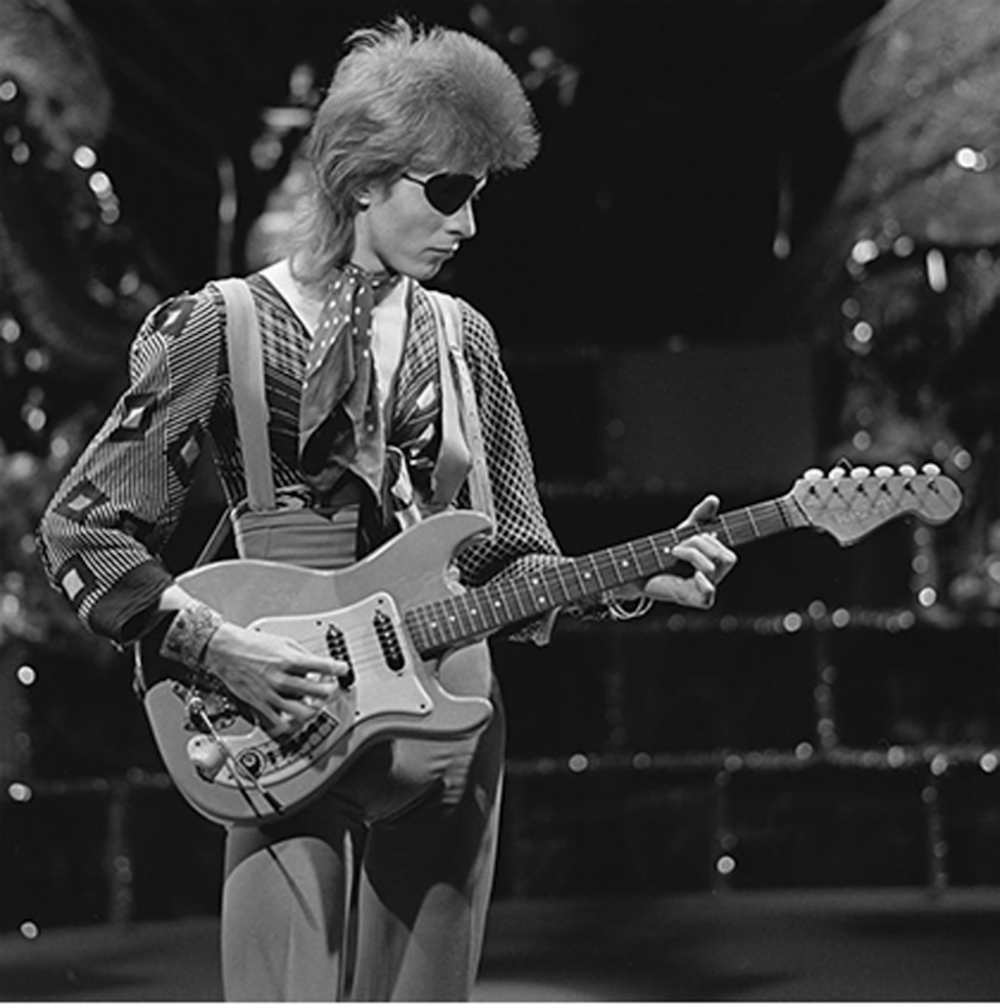Oct. 21 marked the release of the original cast recordings for Lazarus, a stage musical written and composed by David Bowie and Enda Walsh.
It was one of Bowie’s final two projects along with Blackstar, the album famously released just days before his death in January, and had a small run off-Broadway last winter. A production at the King’s Cross Theater in London is set to begin this November and run through January.
The story is meant to serve as a sequel to The Man Who Fell to Earth, a novel by Walter Tevis in whose 1977 film adaptation Bowie played the leading role. The original London Cast recording features performances by Michael C. Hall, Lynn Craig, Sophia Caruso, Charlie Pollack, Michael Esper, Krystina Alabado, Nicholas Christopher, Cristin Milioti and David Bowie himself.
Composed of hits from Bowie’s expansive musical career as well as a few songs written brand-new for the show, Lazarus takes on the task of reworking some of the most iconic pop hits of the 20th century.
The opening title track does a good job of setting the musical tone for the remainder of the album, a more celebratory take on the Blackstar single. The stylization of Bowie’s final album can be heard in the pushed-back, slow beats and ambient horn and trumpet used throughout.
This works to various effects from song to song with the soundtrack feeling on the whole minimalist with explosive flairs. Songs like “This is not America” and “The Man Who Sold the World” find new life in percussive, electronic mixes while “Changes” comes into its own with its reflective lyrics further amplified by the paired-down instrumentals and emotional performance by Milioti in an exciting departure from the original.
In this track alone the larger feel of the soundtrack really shines through the melancholy of tragedy and the energy of perseverance against adversity. These departures can give hits new life, but some mixes that hover too close to their originals fall flat. While the original track “No Plan” puts Caruso in the spotlight, with the light piano and synth backtrack fully displaying her vocal ability, a similarly-backed rendition of “Life on Mars?” remains too similar to the original to avoid drawing comparison to Bowie’s 1971 rendition.
Most of the tracks here are either solos or duets, with the full ensemble cast only really coming out all together twice — on “Absolutes Beginners,” a jazzy love song, and “All the Young Dudes,” a showcase of the talent on this cast but a worthy successor to the original unable to deviate far from its all-too-timeless tune.
The arrangement produced a similar result on the finale track, a rendition of “Heroes” featuring Caruso and Hall in another paired-down, somber transformation of a pop hit with deeper lyrics.
Hall is really able to sound like Bowie here, and the musical styles of Blackstar come through in an obvious way, rounding out the soundtrack’s contemplation of loss and optimism for the future with the final, lightly scored standalone “Just for one day...”
The soundtrack is of course making headlines for a reason beyond the ability of its cast and Bowie and Walsh’s fabulous reworking of Bowie’s best: The final three studio recordings Bowie made before his death are bundled at the end of the soundtrack.
Here he performs the three original songs from the musical: “No Plan,” “Killing a Little Time” and “When I Met You.” From dreamlike to angered, over synths, guitars and piano, Bowie delivers his signature styles one last time.
The thought-provoking lyrics hover over light beats and melodic tunes. In all, this sampler, if anything, reminds us of the robustness of Bowie’s talents and his ability to innovate time and time again over a lengthy career.





